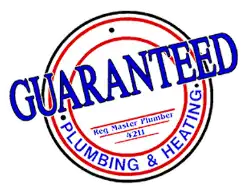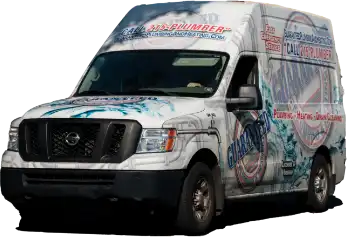
Your Sewer Line Guide: How Long Does a Sewer Line Last & More
Your Local Resource For Sewer Line Repair & Replacement in the Philadelphia Area
Your sewer lines may not be the most glamorous part of your home, but they’re essential for keeping your plumbing system working properly. Understanding how your sewer lines work, how you can maintain them, and when they need to be replaced is important knowledge for any homeowner. At Guaranteed Plumbing & Heating, we want to help you manage and maintain your sewer lines effectively. Here are some answers to your top questions about your home’s sewer lines.
How Long Does a Sewer Line Last?
The lifespan of a sewer line depends on several factors, including the material it is made from, installation quality, and environmental conditions. Here are the typical lifespans for various types of sewer line materials:
- Cast Iron: Cast iron sewer pipes are common in older homes and typically last 75 to 100 years. However, they are susceptible to rust and corrosion over time.
- PVC and ABS Plastic: Modern homes often use these materials for sewer lines. They are resistant to corrosion and have a lifespan of 100 years or more under optimal conditions.
Signs That Your Sewer Line Needs Attention
Even with durable materials, sewer lines can encounter problems. Here are signs that your sewer line may need repair or replacement:
- Frequent Backups: If backups are occurring more often, especially after fixing recent clogs, this might indicate a deeper issue within your sewer line.
- Unpleasant Odors: Persistent sewer smells can suggest cracks or blockages in your sewer line that need to be addressed.
- Lush Patches in Yard: Unusually green or lush patches in your lawn could indicate a sewage leak enriching that area of the soil.
- Sinkholes or Indentations in the Yard: Any visible changes in your yard’s topology might be a sign of a collapsing sewer line.
Preventative Maintenance Tips For Sewer Lines
To extend the life of your sewer line and avoid costly repairs or replacements, consider the following preventative maintenance tips:
- Regular Inspections: Have your sewer line inspected by professionals like those at Guaranteed Plumbing & Heating every couple of years, especially if you live in an older home.
- Avoid Chemical Drain Cleaners: These can corrode your pipes over time. Instead, opt for enzymatic solutions or mechanical methods to clear clogs.
- Be Mindful of What Goes Down Your Drains: Avoid flushing anything that doesn’t break down easily, like certain types of paper products, cooking oils, and non-biodegradable items.
When to Consider Replacement
Consider replacing your sewer line if:
- The Cost of Repairs Rises: When the frequency and cost of repairs begin to rival the cost of a new sewer line, replacement may be the more economical choice.
- During Major Home Renovations: If you’re already doing significant work on your home, it might be a good time to replace an aging sewer line to avoid disruptions later.
Contact Our Sewer Line Experts Today For Service in Philadelphia, Bucks, & Montgomery County
If you’re concerned about the health of your sewer line or are considering a replacement, contact Guaranteed Plumbing & Heating for expert advice and professional service. We’re here to help you keep your home comfortable and your plumbing in top condition.

